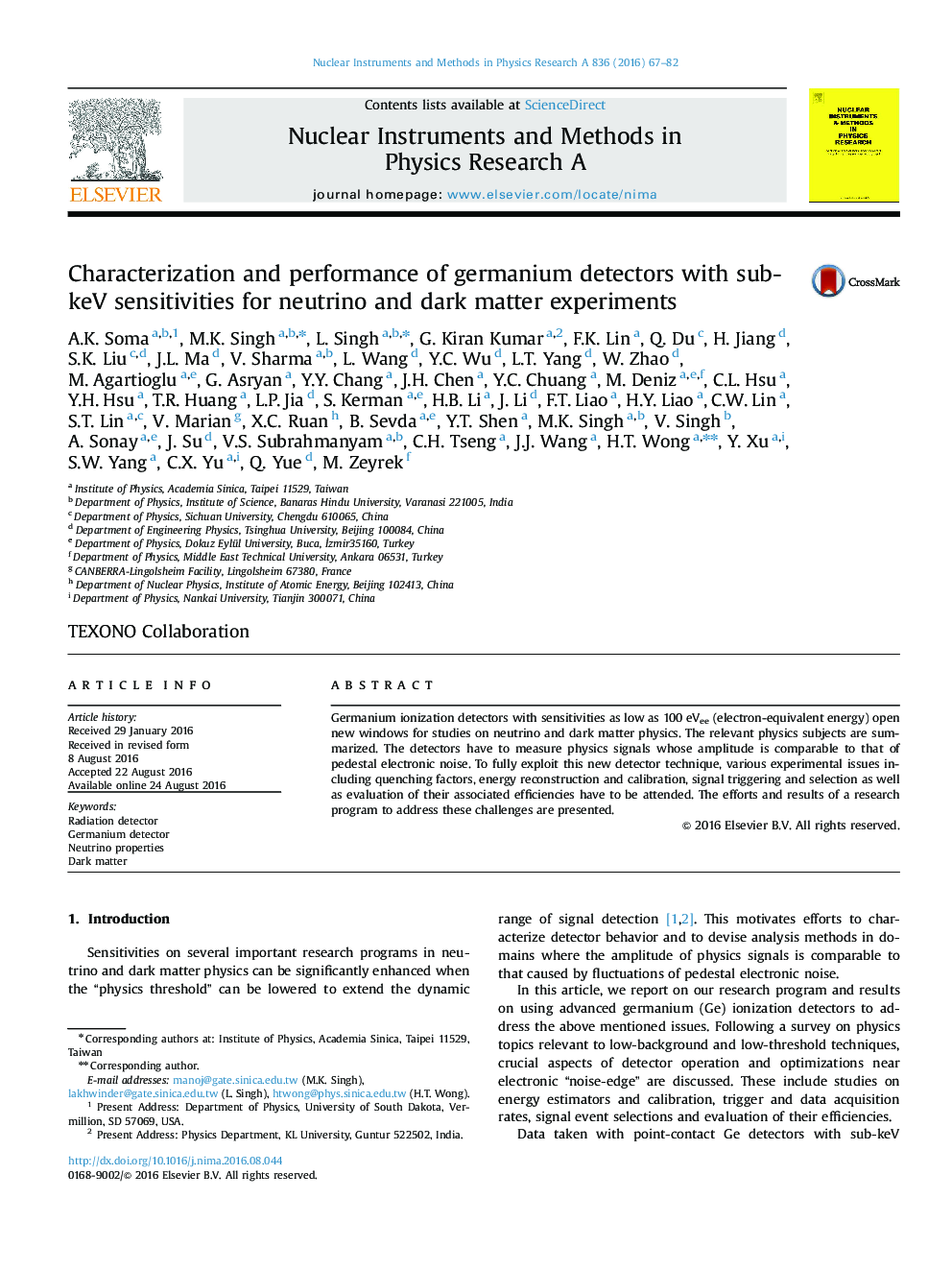| Article ID | Journal | Published Year | Pages | File Type |
|---|---|---|---|---|
| 8168124 | Nuclear Instruments and Methods in Physics Research Section A: Accelerators, Spectrometers, Detectors and Associated Equipment | 2016 | 16 Pages |
Abstract
Germanium ionization detectors with sensitivities as low as 100Â eVee (electron-equivalent energy) open new windows for studies on neutrino and dark matter physics. The relevant physics subjects are summarized. The detectors have to measure physics signals whose amplitude is comparable to that of pedestal electronic noise. To fully exploit this new detector technique, various experimental issues including quenching factors, energy reconstruction and calibration, signal triggering and selection as well as evaluation of their associated efficiencies have to be attended. The efforts and results of a research program to address these challenges are presented.
Related Topics
Physical Sciences and Engineering
Physics and Astronomy
Instrumentation
Authors
A.K. Soma, M.K. Singh, L. Singh, G. Kiran Kumar, F.K. Lin, Q. Du, H. Jiang, S.K. Liu, J.L. Ma, V. Sharma, L. Wang, Y.C. Wu, L.T. Yang, W. Zhao, M. Agartioglu, G. Asryan, Y.Y. Chang, J.H. Chen, M. Zeyrek,
